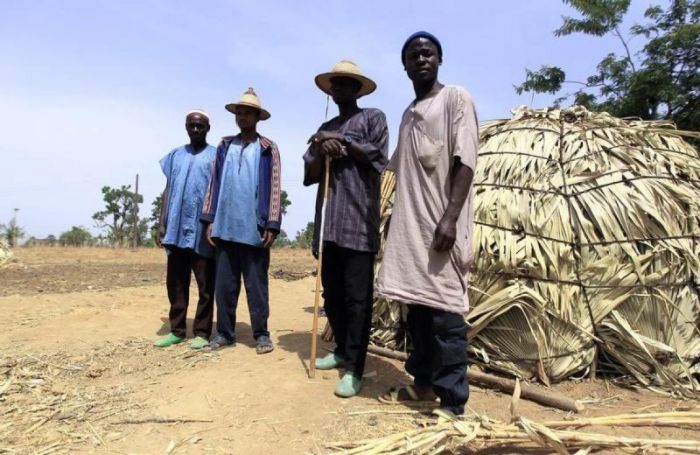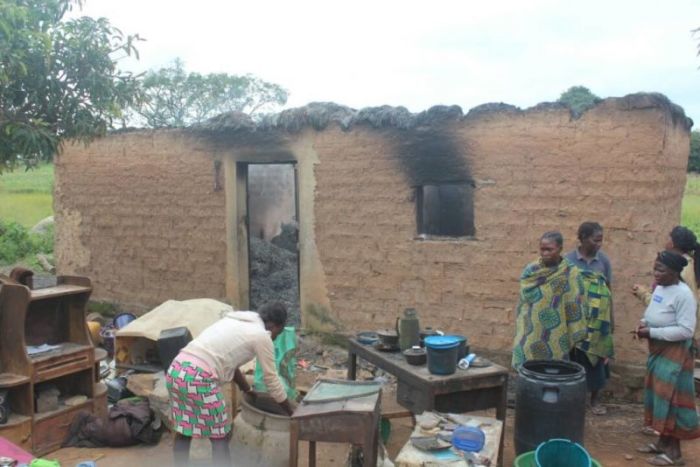USCIRF report examines role religion plays in Fulani attacks on Christians

The U.S. Commission on International Religious Freedom has released a new report examining the claims of religious persecution involving Fulani herding communities in Africa, amid increasing calls for the violence, in Nigeria specifically, to be called “genocide.”
The congressionally mandated panel of experts, activists and scholars who advise the White House, State Department and Congress on issues of religious freedom released a fact sheet Thursday exploring the role that religion plays in the escalating violence being committed by and against Fulani communities in West and Central Africa.
The Fulani people are considered to be the largest nomadic ethnic group in the world; they are predominantly Muslim and linked to livestock raising. The global Fulani population spans millions across more than a dozen countries in the Sahel and West Africa.
But in recent years, the report states, some Fulani communities “have become caught up” in what is described as “recurrent cycles of resource conflict and intercommunal violence.”
“According to many analysts and local civil society representatives, this violence has escalated religious tensions in a region home to many Muslim and Christian communities that have peacefully lived side-by-side for centuries,” the report states.
The report comes as highly-armed radical Fulani extremists (most prominently in Nigeria) are regularly accused of carrying out overnight attacks against predominantly Christian farming communities in agricultural-rich regions, going so far as to kill innocent people, burn homes and displace entire tribes from their farms and homes.
Estimates suggest that thousands have been killed and displaced in recent years due to attacks, with some Christian international human rights groups calling for an investigation into genocide.
However, Fulani communities have also been the victims of deadly attacks over the years as Christian activists say there have been instances of reprisal attacks carried out by village youths.
The increasing violence, which seems to occur daily in some parts of Nigeria, has drawn the concern of the State Department. Last December, the agency listed Nigeria on its “special watch list” of countries that engaged in or tolerate severe violations of religious freedom.
At the time, Ambassador-at-large for International Religious Freedom Sam Brownback told The Christian Post on a press call that the U.S. is concerned about the “increasing violence and communal activity and the lack of effective government response.”
The USCIRF report notes that since the Fulani people are a large ethnic group that has great diversity in terms of culture and lifestyles, it is difficult to make “generalizations” about the ethnic group and its different clans.
But “anecdotal evidence and qualitative research” suggest that the great majority of Fulani are Sunni Muslims and practice Sufism.
According to the government body, some Fulani tribes have “played a significant role in several violent campaigns to implement Islamic rule in west Africa during the 18th and early 19th centuries.”
However, the report notes that some Fulani groups refused to participate in those violent campaigns.
“Still, in several cases the resulting caliphates privileged people from specific, elite Fulani clans for political positions over non-Fulani individuals,” the report explains.
“This contributed to resentment among non-Fulani communities in some areas born from the marginalization and discrimination they experienced under Islamic rule. In some countries today, this resentment lingers and is apparent in civil society rhetoric.”
As the violence by and against Fulani communities have escalated in recent years, USCIRF reports that the trend is being “driven by a complex confluence of climate variability, population growth, arms proliferation, poor governance, intercommunal tensions, illicit economic activity, and inequitable distribution of services and resources.”
Experts and practitioners “continue to debate the extent to which religious ideology plays a direct role in driving violence involving Fulani communities and individuals in west and central Africa,” the report adds.
“However, violence by and against Fulani groups is clearly aggravating religious tensions in countries like Nigeria and CAR,” the report reads. “A 2019 USCIRF study found that narratives around the causes of violence involving Fulani communities in Nigeria’s Middle Belt ‘are some of the most polarizing between religious communities.’"
The report goes on to state that the drivers of violence against and committed by Fulani are “complex” and “multidimensional.”
“In some areas, Fulani militants have been accused of deliberately targeting Christians based on their beliefs,” the document reads.
“As previously discussed, Fulani militia violence is commonplace in CAR, where political, ethnic, and resource-based violence has taken on sectarian dimensions. In Nigeria’s Middle Belt, incidents of suspected Fulani militants burning churches and attacking predominantly Christian villages and Christian religious ceremonies have led to allegations that suspected Fulani fighters are committing genocide against Christians.”

However, the USCIRF report stresses that “intra-Muslim violence involving Fulani groups “complicates claims that Fulani militias are religiously motivated.”
“In northwest Nigeria, pastoralist Fulani ‘bandits’ frequently face off against predominantly Hausa ‘vigilante’ farmers, who are also primarily Muslim, with clashes reaching ‘critical levels’ in recent years,” USCIRF details.
Some cite the participation by some ethnic Fulani in jihadi groups like the Islamic State and al-Qaeda as evidence of Fulani radicals’ religious motivations.
“In Nigeria, there is increasing geographic overlap and evidence of relationship building between jihadist groups and organized criminal bandits that are known to include Fulani fighters,” the report says. “Yet several analysts familiar with the situation on the ground who were interviewed by USCIRF reported that religious ideology plays only a minor role in the motivations of most Fulani fighters, even those associated with jihadist groups.”
The interviewed analysts suggest that there are common objectives shared between Fulani fighters and Islamic extremists, such as overthrowing regional governments, disrupting the status quo, distributing resources and profiting from illegal activities.
“In some areas, jihadist leaders have relaxed their expectations of local fighters, including Fulani fighters, to adhere to strict religious practices where necessary,” the report stresses. “In general, jihadist groups and ideologies reportedly do not enjoy much popular support in Fulani-majority areas.”
Anietie Ewang, a researcher with Human Rights Watch based in Nigeria, previously told CP that among the factors driving violence in the Middle Belt of Nigeria is the increasing desertification of Nigeria, leading to increased migration of herders from the north.
Before concluding its report, USCIRF stressed that there are many examples of Fulani people living peacefully and promoting harmony with other ethnic groups in countries like Guinea, Ghana, and even Nigeria.
“The drivers of this violence are complex and multifaceted, and the extent to which religious ideology plays a prominent role remains a subject of debate,” the report stressed. “Yet, violence involving Fulani communities is aggravating religious tensions in a region where religious freedom violations are common.”
USCIRF recommends the U.S. government invest in “analysis that identifies the perpetrators of violence by and against Fulani groups and their motivations, especially in regions where these dynamics overlap with interreligious tensions.”
The body called for “targeted sanctions” against those who are responsible for the violence against civilians in Nigeria, saying that an approach that focuses on individuals or specific armed groups would “delink violence from perceived religious or ethnic identity.”
Advocates in the U.S. have been calling for the U.S. State Department to name a special envoy for Nigeria and the Lake Chad region.





























